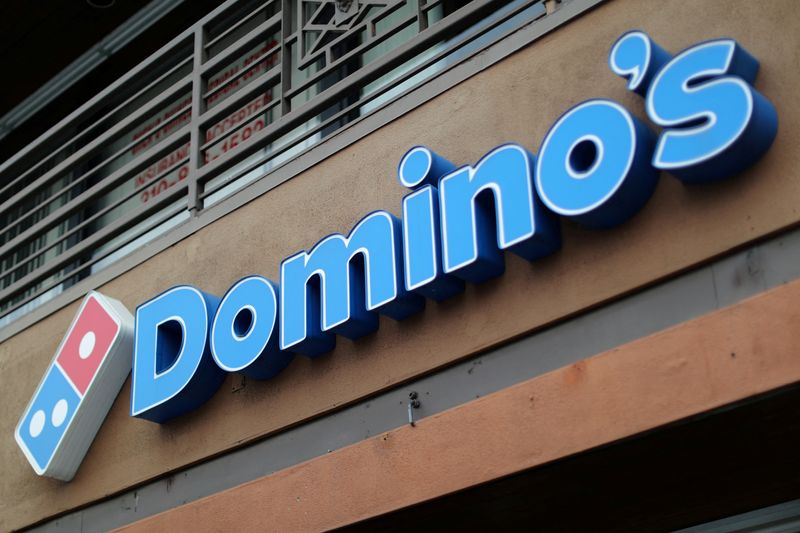By Daniel Wiessner
(Reuters) - The U.S. Supreme Court on Monday gave a boost to Domino's Pizza (NYSE:DPZ) Inc's bid to force delivery drivers to bring a wage lawsuit in private arbitration rather than in court in a case from California that could have major implications for gig economy companies.
The justices threw out a lower court's ruling that had let a group of drivers pursue a class action lawsuit seeking to recoup work-related expenses because their local deliveries represented the final step in the flow of goods over state lines.
The justices ordered the San Francisco-based 9th U.S. Circuit Court of Appeals to reconsider the case in light of the Supreme Court's unanimous ruling in June that Southwest Airlines (NYSE:LUV) Co could not force an overtime pay lawsuit by baggage handlers into arbitration because the workers routinely load cargo onto planes that cross state lines.
A U.S. law called the Federal Arbitration Act requires the enforcement of agreements that workers sign with companies to bring legal disputes in arbitration, but it exempts transportation workers engaged in interstate commerce.
More than half of private-sector U.S. employees have signed arbitration agreements, which typically also bar class action claims. Business groups have called arbitration a quicker and more efficient alternative to suing in court. Workers' advocates have said that process tends to favor employers.
Three delivery drivers sued Domino's in California state court in Santa Ana in 2020, accusing the company of violating various wage laws, and the case was subsequently transferred to federal court.
Domino's made a motion to send the claims to arbitration, citing agreements that the drivers had signed barring them from suing in court. A federal judge in Santa Ana denied the motion, ruling that the drivers were exempt from arbitration because they were involved in interstate commerce.
The 9th Circuit last year upheld the judge's decision, finding that the drivers were integral in getting products that came from outside California to their final destinations. Domino's then appealed to the Supreme Court.
There has been a growing number of lawsuits filed in courts around the country asserting that local delivery drivers qualify for the interstate commerce exemption because they handle goods coming from other states such as various ingredients used to make Domino's pizza and other prepared foods.
The scope of the exemption has divided federal appeals courts in cases involving Grubhub Inc, Uber Technologies (NYSE:UBER) Inc and its subsidiary Postmates Inc, and Amazon.com Inc (NASDAQ:AMZN) "last mile" delivery workers.
